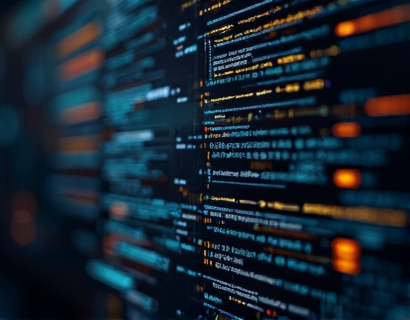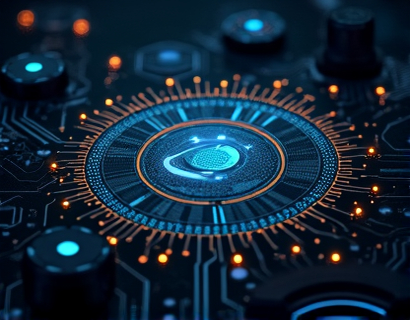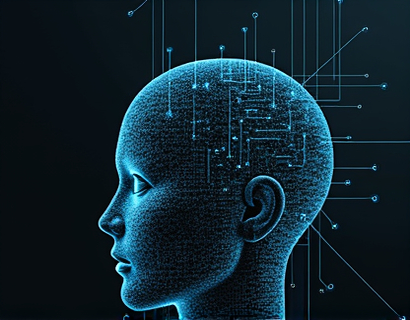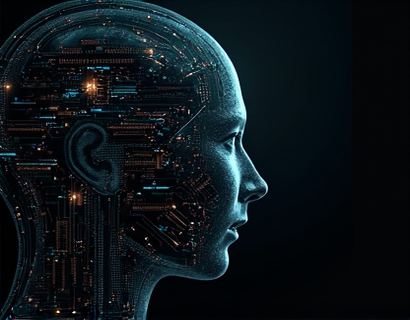AI-Driven Poker Education: Unlocking Mastery for All Skill Levels
In the world of poker, the path to mastery is long and fraught with challenges. Traditional methods of learning, such as reading books, watching videos, and playing at the table, have served many well, but they often fall short in providing a personalized and efficient learning experience. The advent of AI-driven learning tools has revolutionized the way poker enthusiasts can enhance their skills, offering a tailored approach that caters to players of all skill levels. This article delves into the transformative power of intelligent learning platforms designed specifically for poker education, exploring how these tools can unlock mastery for beginners and seasoned players alike.
The Need for Advanced Learning Tools in Poker
Poker is a game of strategy, psychology, and probability, making it both complex and deeply rewarding. For newcomers, the sheer volume of information and the nuanced strategies can be overwhelming. Experienced players, on the other hand, constantly seek ways to refine their game and stay ahead of the competition. Traditional learning methods, while valuable, often lack the personalization and depth required to address the diverse needs of poker players. This is where AI-driven educational tools come into play, offering a dynamic and adaptive learning environment that can significantly accelerate the learning curve.
Personalized Learning Paths
One of the most significant advantages of AI-driven poker education is the ability to create personalized learning paths. These platforms use advanced algorithms to assess a player's current skill level, playing style, and areas for improvement. Based on this assessment, the AI curates a customized curriculum that focuses on the specific aspects of the game that need the most attention. For beginners, this might mean starting with the basics of hand rankings, betting strategies, and reading opponents. For more advanced players, the focus shifts to sophisticated strategies like pot odds, expected value, and psychological tactics.
The personalized approach ensures that learners are not overwhelmed by irrelevant information and can progress at their own pace. This tailored experience not only makes learning more efficient but also more enjoyable, as players see tangible improvements in their gameplay.
Comprehensive Educational Resources
AI-driven poker education platforms offer a wide range of educational resources to support all stages of a player's journey. These resources include:
- Interactive tutorials that guide players through fundamental concepts and advanced strategies
- Video lessons featuring expert players and coaches explaining complex ideas in an easy-to-understand manner
- Simulated poker tables where players can practice and apply what they've learned in a risk-free environment
- Real-time analysis tools that provide insights into a player's performance, highlighting strengths and areas for improvement
- Community forums and chat features where players can connect, share strategies, and learn from each other
These resources are continuously updated and expanded based on user feedback and the latest developments in poker strategy, ensuring that learners always have access to the most current and effective information.
Adaptive Learning Technology
The core of AI-driven poker education lies in its adaptive learning technology. This technology uses machine learning algorithms to monitor a player's progress and adjust the difficulty and content of the learning materials in real-time. For instance, if a player consistently struggles with a particular concept, the AI will identify this and provide additional resources or exercises to reinforce understanding. Conversely, if a player demonstrates mastery in a certain area, the AI will introduce more challenging content to keep them engaged and continue their growth.
This adaptive approach not only optimizes the learning process but also helps prevent plateaus and stagnation. Players are constantly pushed to improve, ensuring that they remain engaged and motivated throughout their learning journey.
Expert Insights and Community Support
While AI-driven tools provide a solid foundation for learning, the human element remains crucial in poker education. These platforms often feature contributions from professional players, coaches, and seasoned enthusiasts who share their insights and experiences. These expert insights offer a depth of knowledge that AI alone cannot replicate, providing players with a more holistic understanding of the game.
Additionally, the community aspect of these platforms fosters a supportive environment where players can interact, collaborate, and learn from one another. Whether it's through live streams, discussion forums, or peer reviews, the community plays a vital role in enhancing the learning experience and providing motivation to continue improving.
Tracking Progress and Setting Goals
One of the most empowering features of AI-driven poker education is the ability to track progress and set achievable goals. Players can set specific objectives, such as improving their hand selection or mastering a particular betting strategy, and the platform will provide a structured plan to achieve these goals. Regular assessments and performance metrics allow players to monitor their progress, celebrate milestones, and stay focused on their long-term objectives.
This goal-oriented approach not only keeps players motivated but also helps them develop a disciplined mindset, which is essential for success in poker and other areas of life.
Enhancing Decision-Making Skills
At the heart of poker lies the ability to make optimal decisions based on a combination of probability, psychology, and intuition. AI-driven learning tools are designed to enhance these decision-making skills through various interactive exercises and simulations. For example, players can engage in virtual poker sessions where they must make real-time decisions under pressure, receiving immediate feedback on their choices.
These simulations can replicate a wide range of scenarios, from tight-aggressive play to loose-passive strategies, allowing players to experience and adapt to different playing styles. By repeatedly practicing these decision-making scenarios, players can develop a more intuitive and effective approach to the game.
Psychological Aspects of Poker
Poker is not just a game of cards; it is also a battle of minds. The psychological aspect of the game can be as crucial as the technical skills. AI-driven educational platforms recognize this and offer resources that focus on the mental and emotional aspects of poker. Topics covered include:
- Managing stress and emotions during high-stakes situations
- Developing a strong bankroll management strategy
- Understanding and exploiting opponent psychology
- Building resilience and maintaining a positive mindset
By addressing these psychological factors, players can improve their overall performance and consistency at the table.
Accessibility and Convenience
Another significant advantage of AI-driven poker education is its accessibility. These platforms are available online, allowing players to learn at their own pace and on their own schedule. Whether a player has a few minutes during a break or several hours in the evening, the platform can accommodate their availability. This flexibility makes poker education more accessible to a broader audience, including those who may not have the time or resources to attend traditional classes or workshops.
Moreover, the convenience of learning from anywhere with an internet connection means that players can integrate poker education into their daily routine, further enhancing their ability to consistently improve.
Case Studies and Success Stories
To illustrate the impact of AI-driven poker education, consider the experiences of a few players who have benefited from these platforms. John, a beginner with little to no prior knowledge of poker, used an AI-driven platform to learn the basics and gradually moved on to more advanced strategies. Within six months, he went from playing recreationally to competing in local tournaments, thanks to the personalized guidance and practice sessions provided by the platform.
Similarly, Sarah, an experienced player looking to refine her game, utilized the platform's expert insights and community forums to identify and address her weaknesses. She reported significant improvements in her decision-making and overall table presence, leading to better results in her poker sessions.
These success stories highlight the potential of AI-driven poker education to transform the way players learn and improve, regardless of their starting point.
Conclusion
AI-driven poker education represents a significant leap forward in the way players can learn and master the game. By offering personalized learning paths, comprehensive resources, adaptive technology, expert insights, and a supportive community, these platforms empower players of all skill levels to achieve their full potential. As the technology continues to evolve, the future of poker education looks brighter than ever, promising to make the game more accessible, enjoyable, and rewarding for everyone involved.










































